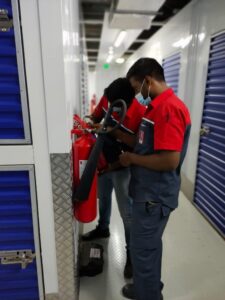A Beginner’s Guide To Kiosk Manufacturers

What should someone look for when choosing a kiosk manufacturer? This question often comes up for businesses planning to use self-service kiosks. These machines are now used in many places, from retail stores to airports. Kiosk manufacturers in Dubai handle the design, structure, and technology behind each unit.
This guide covers basic points for those exploring kiosk manufacturing for the first time.
Types of kiosks:
Kiosks serve different purposes, depending on the industry. Some are for ticketing, others for ordering food or checking in at events. Manufacturers usually focus on specific types or build units based on client requirements. Before selecting one, it is helpful to know the kind of function the kiosk will perform and what environment it will be used in.
Materials and build quality:
The frame and surface of a kiosk affect how long it lasts and how it handles daily use. Kiosk manufacturers often use metal, plastic, or glass, depending on the design. For outdoor kiosks, materials with protective finishes are common. Looking into the materials used can give a better idea of how suitable the kiosk is for public use or long operating hours.
Technology and features:
Most kiosks include touchscreens, printers, card readers, or barcode scanners. Some include cameras or biometric tools. A good manufacturer works with reliable parts and ensures the features are easy to use. Software compatibility is also checked during production, so the kiosk matches the system that the business uses.
Customization options:
While standard models are available, many manufacturers allow custom changes. These include size, color, branding, and specific hardware. Some businesses prefer their logo printed on the machine or want the screen layout to match their store’s theme. Asking about these options early makes the design process smoother.
Installation and setup:
Once made, kiosks must be installed correctly. Manufacturers may provide setup services or offer instructions. Larger or more complex models may entail a technician. Knowing how the unit will be delivered, installed, and tested helps with planning the launch.
After-sales support:
Support after delivery often includes basic maintenance, spare parts, or updates. Manufacturers sometimes offer service contracts or a contact for technical issues. Keeping in touch with the manufacturer helps if changes or repairs are necessary in the future.




